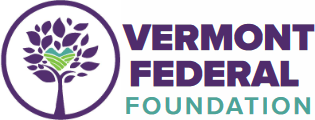If you spend, save, or invest money, you can't afford to ignore changes to the federal funds interest rate or "fed rate". This is the interest rate financial institutions charge each other to borrow funds overnight. Rate changes don't just impact banks and credit unions. Consumers are affected in ways they may not expect.
The United States Federal Reserve System changes the benchmark fed rate to achieve a healthy economy by analyzing inflation and employment data. The ripple effect reaches the wallets of every consumer. Here's how.
Decreases to the federal funds rate lowers the rate of return for many common savings vehicles.
Savings accounts and money market accounts are just a few examples of savings vehicles that take a dip when the fed rate decreases. Despite earning less on your deposits, you should continue to save money. Research additional savings options that offer greater returns. For example, a share certificate might offer a higher rate of return than a standard savings account when the fed rate is low.
Decreases to the federal funds rate reduces the cost of borrowing money.
If you've been delaying a new home or vehicle purchase due to affordability, a reduction to the fed rate is good news. A lower fed rate often translates to significant savings on:
- New fixed and adjustable-rate mortgages
- Current adjustable rate mortgages
- Home equity loans and home equity lines of credit
- New and used auto loans
- New fixed and adjustable-rate private student loans
- Credit card rates
Since financial institutions factor in the fed rate when setting interest rates for consumers, lower rates offer an opportunity to give your personal finances a boost. For example, more of your minimum credit card payment may apply to the account balance than interest charges. Or, refinancing a mortgage or auto loan could result in lower payments without the need to extend repayment terms.
Increases to the federal funds rate translates to higher borrowing costs, but also higher rates of return.
When the federal funds rate increases, you can still benefit. It's true that higher rates directly affect credit card balances and adjustable-rate loans. But, while higher rates increase borrowing costs, a rate hike also means higher interest paid on savings deposits and other accounts that pay dividends.
The fed rate is influenced by many factors and will continue to change. You can't influence how, when, or why it fluctuates, but you can make wise decisions with your money regardless of the changes. Building an emergency fund, paying off high interest rate debt, and diversifying investments are good ideas regardless of economic conditions.
Sign up for a free financial health consultation with a Vermont Federal Loan Specialist to learn about options for improving your financial situation.
Vermont Federal Credit Union is a $900 million-plus full-service, not-for-profit, cooperative financial institution that has served Vermonters for more than 70 years, with eight locations currently serving over 50,000 members. Members are part of a cooperative, meaning they share ownership in the Credit Union and elect a volunteer board of directors. Vermont Federal Credit Union provides membership to anyone who lives, works, worships, or attends school in all of Vermont. Vermont Federal Credit Union is committed to supporting its communities and helping Vermonters prosper, no matter where they may be on life’s journey. Learn more about Vermont Federal Credit Union.








